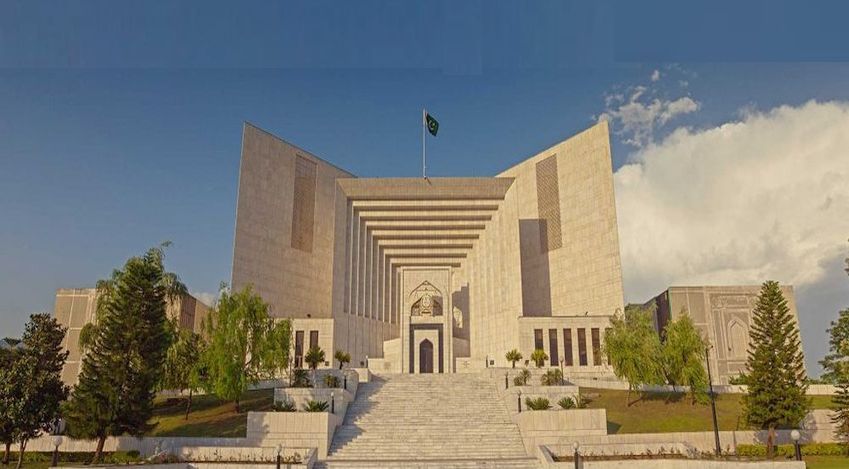The Rent Disputes should be decided based on the Preponderance of Probability rather than Strict Proof Requirements --- Supreme Court of Pakistan
Islamabad 05-03-2025: In a landmark ruling, the Supreme Court of Pakistan has held that strict evidentiary requirements under the Qanun-e-Shahadat Order, 1984, do not apply to Rent Tribunal proceedings under the Punjab Rented Premises Act, 2009. The apex Court reversed the Lahore High Court’s decision, restoring the eviction order previously granted by the Additional District Judge.
The case, Zafar Iqbal & another Vs. Syed Riaz Hussain Shah & others [CPLA 3854/2024], raised a crucial legal question: Must a disputed tenancy agreement be proved in Rent Tribunal proceedings under Articles 17(2)(a) & 79 of the Qanun-e-Shahadat Order, 1984?
The Petitioners filed an eviction petition under Section 15 of the Punjab Rented Premises Act, 2009, against the Respondent claiming that he was occupying their shop under a tenancy agreement dated 21.03.2006. The Respondent denied the tenancy relationship, alleging that the agreement was fraudulent.
The Rent Tribunal dismissed the Eviction Petition on the grounds that the tenancy agreement was not properly proved due to the non-production of attesting witnesses, as required under Article 79 of the Qanun-e-Shahadat Order, 1984. However, the Additional District Judge reversed the decision, ruling that Qanun-e-Shahadat does not strictly apply to rent cases. On appeal, the Lahore High Court reinstated the Rent Tribunal’s decision, prompting the petitioners to approach the Supreme Court of Pakistan.
A two-member bench comprising Mr. Justice Syed Mansoor Ali Shah and Mr. Justice Aqeel Ahmed Abbasi analyzed the legal framework governing Rent Tribunal proceedings and made several key observations:
- Section 34 of the Punjab Rented Premises Act, 2009, expressly excludes the Qanun-e-Shahadat Order, 1984, and CPC, 1908 from Rent Tribunal proceedings.
- Rent Tribunals function as quasi-judicial bodies and are not bound by rigid procedural laws.
- Articles 17(2)(a) & 79 of Qanun-e-Shahadat are special provisions applicable to Civil Suits but not to Rent Tribunal proceedings.
- The Court ruled that rent cases should be decided on the standard of preponderance of probability rather than strict proof requirements.
- Ownership documents, tenancy agreements, and supporting witnesses are sufficient evidence without requiring attesting witnesses under Article 79 of Qanun-e-Shahadat.
- The Court emphasized that the purpose of rent laws is the expeditious resolution of disputes, and strict evidentiary requirements would frustrate the legislative intent.
- Relaxed procedural rules reduce litigation costs and ensure accessibility to justice for landlords and tenants alike.
- The tenancy agreement did not specify a fixed term, making it a month-to-month tenancy under Section 106 of the Transfer of Property Act, 1882.
- The landlord served a valid one-month termination notice, which was not disputed by the tenant in his response.
- The Supreme Court of Pakistan reaffirmed that a landlord’s sworn statement on bona fide personal use is sufficient for eviction if unchallenged.
Final Verdict
- The Supreme Court of Pakistan overturned the Lahore High Court’s decision and restored the Additional District Judge’s eviction order.
- It ruled that Articles 17(2)(a) & 79 of Qanun-e-Shahadat Order, 1984, are not mandatory in Rent Tribunal cases.
- The Petitioners successfully proved the tenancy agreement and the Respondent’s obligation to vacate the premises.
This ruling establishes a clear precedent for future rent cases, affirming that:
- Rent Tribunals are not bound by strict evidentiary rules under Qanun-e-Shahadat.
- Tenancy disputes should be decided on a balance of probabilities rather than formalistic proof.
- The landlord’s affidavit and supporting documents are sufficient for eviction.
Procedural efficiency in rent disputes must be prioritized to ensure timely relief.
Powered by Froala Editor








